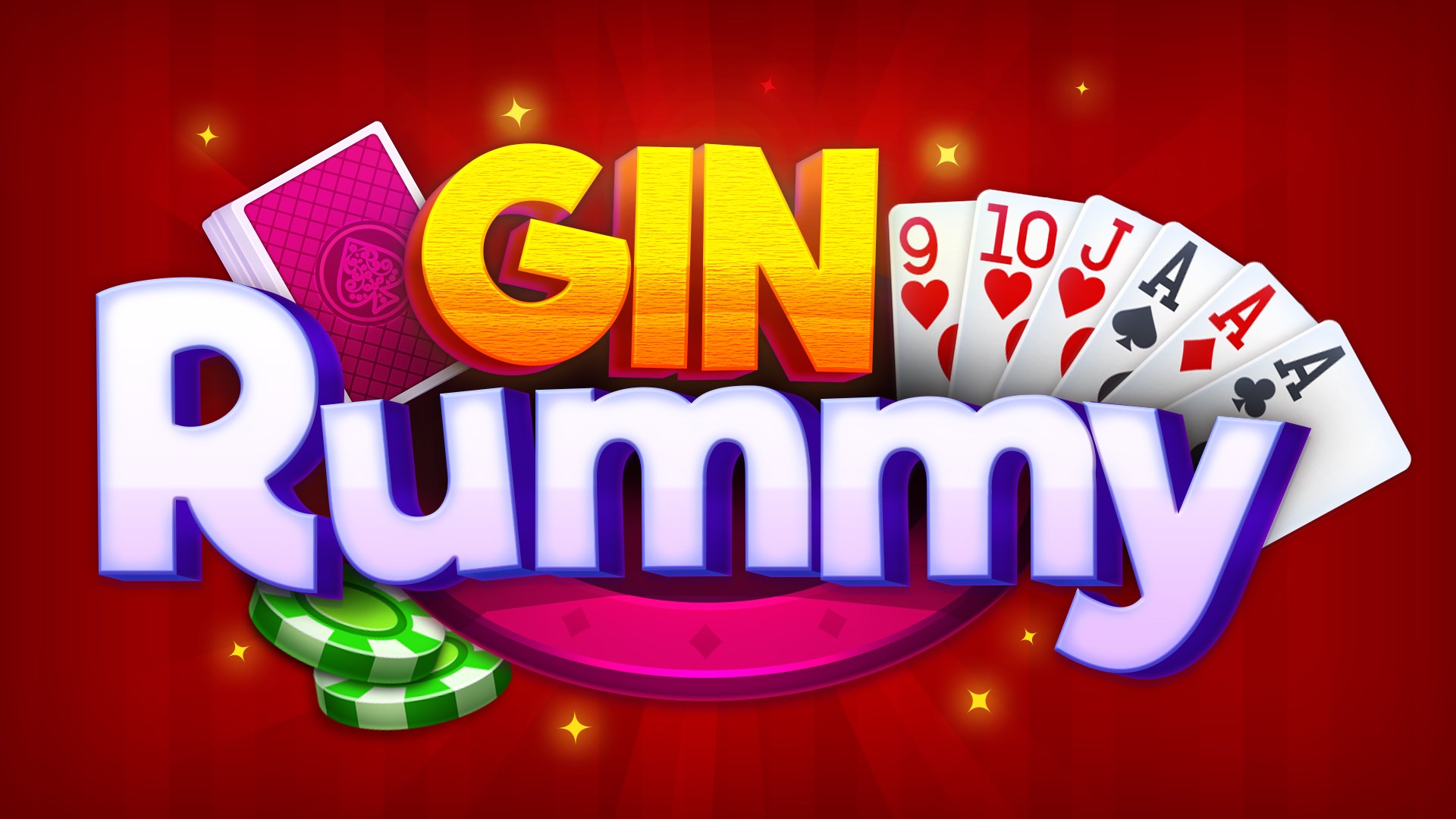Gin Rummy Online Free

- Today, Gin Rummy is one of the most popular forms of Rummy. As with all games in the Rummy family, you must try to arrange your cards into sets and sequences and lay them down as quickly as possible. The aim of the game for the two players is to get groups of the same values or sequences in the same suits to be able to knock.
- Gin rummy: a popular version of rummy played with two people. Often confused with traditional rummy. Go out: To get rid of the last card in your hand, to win and end a round.
In the online game of gin rummy, ten cards each are dealt to 2 players. The 21-st cardis opened face up (upcard) and put next to the deck. At each turn you draw a card by dragging it from thedeck or from upcard. When you discard a card, you place it on top of the current upcard sothe newly discarded card becomes an upcard.
Only at the start of the game the non-dealer would consider either exchanging one ofhis cards with an upcard or passing the opportunity. The rules of the game do not allowyet any drawing from deck. In case of passing, the dealer would consider exchanging withthe upcard or passing it. Again, no drawing from deck is yet allowed.
If both of gin rummy online players refuse the very first upcard, the non-dealer muststart a game by drawing the top card from the deck, add it to his hand and discard ANYcard face up on top of the original upcard to continue the waste pile.
Thereafter, each player in turn must draw and add to his hand either the unknown topcard from the deck OR the known upcard on the very top of the waste pile. In either case,the online player completes his turn by discarding one card face up to the waste pile. Itis not permitted to draw the upcard & discard it on the same turn.
The melds that the player is building may consist of
- either 3 or 4 cards of the same rank
- sequence of 3 or more cards in the same suit (Ace & King are not considered consecutive, but Ace and 2 are ).
A hand consisting entirely of melds with no deadwood is described asgin and carries a bonus. The online player, however, does not have to wait for gin but mayend up a game as soon as the total value of his unmatched deadwood is 10 or less. (This iscalled maximum knocking value. It is set at 10 for pure gin rummy. For theoptional Oklahoma variation this value may not be 10, butis determined by the value of the initial upcard. For example, such knocking value can be 2 if the initial upcard is 2. Initial Ace as an upcard, however, is a special case in Oklahoma -- the knocking can happen only with a Gin hand (0 points). Oklahoma variationalso has an optional double-spades rule that will be introduced shortly: when the spade is an upcard, all points in this hand double.
During online play melds are not revealed – they are kept secretlyin hand.
Knocking, Ginning and Laying-off
When an online player is satisfied with low value of his deadwood,he/she ends the game by ‘theoretically’ knocking on the table AFTER he/she hasdrawn an 11-th card and BEFORE discarding the last card [knock button]. The final discarded card isplaced face up on the closed stock.
Knocking will be disallowed if the auto-calculated deadwood in knocker's hand will begreater than the maximum knocking value.After knocking, both the knocker and the opponent will see their cards on the table face^up, arranged in melds. The opponenthas the privilege of ‘laying off’ any cards of his own deadwoodwhich may be matched with any of the knocker’s melds in order to reduce the penaltyvalue of his deadwood. This privilege does not apply if the knocker has a gin hand with nodeadwood. When both players'cards are shown, the opponent of the knocker can lay-off or attach his/herown deadwood cards to opponent's melds by dragging the cards towardsopponent's ones.If a player has a gin hand, still the same 'Knock' button has to be pressed and the extra 11-th card has to be discarded. The system will determine automatically whether it was a gin hand or not.
If the knocker has the lower count of deadwood, he/she scores thethe difference between their values of deadwood. For gin, the knocker adds a 25 point bonus.
If the knocker has higher or equal value of deadwood, the knockerreceives a 25 point penalty for undercut plus any difference in deadwood values.
The 2 last cards of the deck may not be taken. If neither player hasknocked before then, the deck is reshuffled.
The score is kept cumulatively for each player online. The winner addshis score for the hand to his previous total in order to make clear when 100 has beenreached or exceeded. 100 total points is a default, but players canchoose 50, 100, 150, 200, 250, 300
The game ends as the player reaches the agreed upon number of points.
The objective in gin rummy is to score points and reach an agreed number of points or more, usually more than 100, before the opponent does. Details: Gin rummy is played with a standard.
Rules
Objective
The objective in gin rummy is to score points and reach 100, before your opponent does.
The basic game strategy is to improve one's hand by forming melds and eliminating deadwood. Gin has two types of meld: Sets of 3 or 4 cards sharing the same rank, e.g. 8♥8♦8♠; and runs of 3 or more cards in sequence, of the same suit. e.g. 3♥4♥5♥ or more. Deadwood cards are those not in any meld. In gin rummy aces are considered low and can form any set of aces but only the low end of runs (e.g. A♠2♠3♠ etc.). Q♠K♠A♠ is not a legal run in gin rummy. A player can form any combination of melds within their hand, whether it contains all sets, all runs, or both.
The deadwood count is the sum of the point values of the deadwood cards - aces are scored at 1 point, face cards at 10, and others according to their numerical values.


Dealing
Dealership alternates from round to round. The dealer deals 10 cards to both players, and then places the next card in the deck face up. This begins the discard pile. The face down pile is known as the stock pile. On the first turn, the non-dealing player has first option of taking the upcard on the discard pile or passing. If the non-dealing player passes the upcard, the dealer is then given the opportunity to take the upcard or pass. If the dealer also passes, the non-dealing player must draw from the stock pile. Once the first upcard has been drawn into a player's hand or both players have passed it, subsequently each player may choose from which pile to draw.
Gameplay
On each turn, a player must: draw either the (up card) top card of the discard pile, or the (face-down) top card from the stock pile, and discard one card from his or her hand onto the discard pile.
Players alternate taking turns until one player ends the round by knocking, going Gin, or until only two cards remain in the stock pile, in which case the round ends in a draw and no points are awarded. The game ends when a player reaches 100 or more points.
Knocking
A player may only knock if he has 10 or fewer points of deadwood. Knocking with 0 points of deadwood is known as going Gin.
To knock, the knocking player ends his turn by discarding as usual, announces that he is knocking , and lays his hand out with the melds clearly indicated and deadwood separated. The other ('defending') player is then entitled to lay out any melds in his or her hand and can then lay off any of his or her remaining deadwood cards that fit into the knocking player's melds, provided that the knocking player does not have a gin hand.
For example, the knocking player has a meld of three Kings. The defending player has a king as part of his deadwood. He can lay off that king, reducing his deadwood count by ten. The knocking player can never lay off his or her deadwood into the defending player's melds.
The knocking player then subtracts his deadwood points from the defending player's deadwood points. The result is the number of points the knocking player receives. An undercut occurs if a player knocks and the defending player's deadwood points are less or equal than the knocking player's. In this case the defending player receives an undercut bonus (25 points) plus the difference in deadwood points.
Gin
If all 10 or 11 cards in a player's hand fit into melds and thereby the player has no deadwood, player receives a Gin bonus of 25 points plus any deadwood points in the opponent's hand. The defending opponent can only lay out his or her melds and cannot lay off any deadwood into the melds of an opponent that has declared Gin. A player can go Gin with a hand of three or fewer melds as long as all cards fit into a meld.
Free Gin Rummy Games Computer
Scoring
Free Gin Rummy Online Download
Aces are scored at 1 point, face cards at 10, and all other cards are scored at their numerical values. Points are scored in Gin for the following:
- Knock Points
- After a player knocks, and the lay offs are made, the knocking player receives a score equal to the difference between the two hands. For example, if a player knocks with 8, and the defender has 10 deadwood points in his or her hand after laying off, the knocking player receives 2 points for the hand.
- Gin Bonus
- After going gin, a player receives a bonus of 25 points plus the entire count of deadwood in his opponent's hand. There is no chance to lay off when a player goes gin.
- Undercut
- Occurs when the defending player has a deadwood count lower than or equal to that of the knocking player (this can occur either naturally or by laying off after a knock). In this case, the defender scores an undercut bonus of 25 points plus the difference between the two hands.